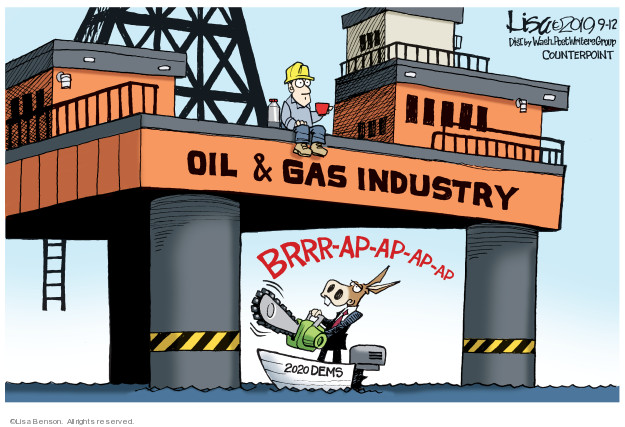
David Blackmon writes at Forbes Winter Is Coming: Can Energy Catastrophe Be Averted? Excerpts in italics with my bolds and added images.
Bank of America said in a note on Friday that the price for crude oil could exceed $100 per barrel over the winter and precipitate a global economic crisis, as reported by BNN Bloomberg. In its note, BofA cites the possibility of an unusually cold winter, higher aviation demand and potential gas-to-oil switching in power generation as factors that could create a further run-up in oil prices, which have already risen by almost 60% since January.
For Japan, Korea and much of Europe, natural gas prices have already climbed to levels that are considerably higher than the price for crude on a per barrel equivalent basis. Further increases could support switching from gas to fuel oil in power generation, but only where such switching is still available. Many western nations have forced the elimination of that ability due to environmental considerations as governments and companies have responded to pressures from the green lobby and the ESG investor community.
That is of course just one more example of the kinds of premature and frankly irrational energy choices governments – including the U.S. – have been making in the past few years to try to hasten this “energy transition,” forcing the replacement of reliable, high-density energy sources like fossil fuels and nuclear with low-density energy sources like wind, solar and electric vehicles powered by lithium-ion batteries.

Several MEPs (mainly Greens) hold up anti-nuclear posters at the debate.
The energy crisis in Western Europe this summer has been brought on by premature retirements of hundreds of coal and natural gas power plants in favor of massive over-reliance on wind power and, to a lesser extent, solar. Ironically, this crisis is taking place just as House Speaker Nancy Pelosi and congressional Democrats attempt to ram through their massive $3.5 “budget reconciliation” bill that is in large part designed to recreate the European model in the United States.
 As Allysia Finley reported in the Wall Street Journal last week, In the past decade the U.K. and Europe have shut down hundreds of coal plants, and Britain has only two remaining. Spain shut down half of its coal plants last summer. European countries have spent trillions of dollars subsidizing renewables, which last year for the first time exceeded fossil fuels as a share of electricity production. The problem with this strategy this year has been the fact that the wind has pretty much stopped blowing in Europe, causing governments that spent the last decade retiring coal and natural gas plants to scramble to re-activate them. European officials resorted to cleaner-burning natural gas first, and the resulting added demand for natural gas has led to record U.S. exports of LNG to Europe, which in turn has caused a spike in global LNG prices.
As Allysia Finley reported in the Wall Street Journal last week, In the past decade the U.K. and Europe have shut down hundreds of coal plants, and Britain has only two remaining. Spain shut down half of its coal plants last summer. European countries have spent trillions of dollars subsidizing renewables, which last year for the first time exceeded fossil fuels as a share of electricity production. The problem with this strategy this year has been the fact that the wind has pretty much stopped blowing in Europe, causing governments that spent the last decade retiring coal and natural gas plants to scramble to re-activate them. European officials resorted to cleaner-burning natural gas first, and the resulting added demand for natural gas has led to record U.S. exports of LNG to Europe, which in turn has caused a spike in global LNG prices.
Thus we see the consequence of a mass decision by European governments to attempt to violate the laws of physics by trying to replace high-density energy sources with low-density energy sources now resulting in their colliding with the laws of supply and demand.
 It is in the face of this looming energy crisis in Europe largely precipitated by these policy decisions that the Biden administration and congressional Democrats have spent the past week attempting to move their “budget reconciliation” bill, which is mainly a social welfare and Green New Deal funding bill. This massive piece of legislation is loaded up with hundreds of billions of dollars in new subsidies, mandates and incentives for these very same intermittent, low-density energy sources, along with new taxes and draconian regulatory actions designed to drive up the cost of fossil fuels in power generation and transportation.
It is in the face of this looming energy crisis in Europe largely precipitated by these policy decisions that the Biden administration and congressional Democrats have spent the past week attempting to move their “budget reconciliation” bill, which is mainly a social welfare and Green New Deal funding bill. This massive piece of legislation is loaded up with hundreds of billions of dollars in new subsidies, mandates and incentives for these very same intermittent, low-density energy sources, along with new taxes and draconian regulatory actions designed to drive up the cost of fossil fuels in power generation and transportation.
It would be one thing for leaders in Washington, DC to engage in this exercise if the needed battery storage technology for those low-density energy sources existed on a wide scale. But, as I’ve documented here this year, while progress in research has been made, no such technology currently exists on a meaningful, scalable basis. Making matters even more tenuous, the producers of the array of critical minerals needed for the existing lithium-ion technology currently in limited use for power generation and essential for EVs are scrambling to figure out how they are going to meet new demand that is projected to rise by as much as 4,000 percent by 2040 for their products, according to the International Energy Agency (IEA).
Of course the “clean energy transition policies” bear some responsibility for this run-up in energy prices. Every new regulation, no matter how noble-minded, has a cost, and the “energy transition” has already demanded wave after wave of new regulation on fossil fuels. Claiming these actions bear no cost or consequence is simply absurd.

Plus, it’s not just the policies of the transition at play here. The ESG-related demands of the investor community, which have limited access to capital for fossil fuel producers and demanded that they shift big portions of their capital budgets over to “green” energy initiatives, have also played a significant role in driving up fossil fuel prices. This is not even arguable:
In fact, it’s a key part of the “green” strategy to raise the cost of fossil fuels so that these other “green” energy sources become more competitive in the marketplace.
While the news about the energy crisis focuses in on Europe right now, the truth is that this is rapidly becoming a global crisis impacting global markets. Officials like Birol and the commissioners at FERC may not want to admit it, but the truth is that just 9 months ago, crude oil was cheap, gasoline and diesel at the pump were cheap, natural gas was cheap and all were in seemingly plentiful supply. Today, just 270 days later, oil is $80 and projected to move to triple digits, gasoline at the pump costs $1 per gallon more in the U.S. than it did in January, natural gas prices have doubled in the U.S. and more than quadrupled in parts of Asia and European governments are scrambling to figure out where their supplies for the winter will be sourced.

The stark reality is that there will be no quick fixes from here, for the simple fact that none are available. The senseless policy decisions that helped create this crisis took a decade to fully implement, and will take at least that long to reverse if policymakers should decide to come to their senses. As demand for oil and natural gas rise to new global heights, both Wood MacKenzie and Rystad Energy have issued recent reports showing that the last half-decade has seen an under-investment in the finding of new reserves that runs into the hundreds of billions of dollars. That is not something that can be remedied overnight.
At the end of the day, despite all the prevailing narratives flying around, the world’s energy future will be governed as it always has: By the laws of physics, supply and demand. It is becoming fearfully evident right now that the policy decisions made by governments in Europe, the U.S. and other parts of the world during the last decade have violated all three of those immutable laws.
As a result, winter is coming, and potential energy disaster is coming with it.

Price rises are the desire of the WEF because it impoverishes people. No, that’s not conspiracy. If you want people to ‘give up’ things they love, make essentials very expensive.
It is highly likely they will try to impose unreasonably high home insulation standards (on the back of climate change lies), that most homes will not meet without considerable investment.
What then if you don’t have the money? The government will carry out the work, & forgive your debt upon transferring your home to the State. Job done, “You’ll own nothing (& be happy?)”
LikeLike
OK. WEF must be World Economics Forum. Sad that so many bought into the Nanny State notion not realizing they are concerned only with their own way of life, and the others to be serfs. Whatever happened to “Public Service”, now only lip service.
LikeLiked by 1 person
Yes, they believe we are ‘to be controlled’. Freedom in the form of travel & ownership, must be forsaken for the greater good of protecting the world, to protect the masses. The Cloward-Piven strategy in full effect: to create huge change, manufacture a great crisis, or two (Covid), especially ones that are invisible and debatable.
The result is pure communism. The ‘great’ elites are so few they’ll be able to continue their lifestyles unabated because some have to manage the world. The poor remain so, and have lifestyle that the ‘Resetters’ believe less climate invasive due to their lack, and so the bulk of costs & controls are borne by the middle classes.
The equal sharing of misery, as Churchill once said. We must ensure they fail. Thank you for all you do to bring the truth to the public domain.
LikeLike
Reblogged this on Climate Collections.
LikeLike